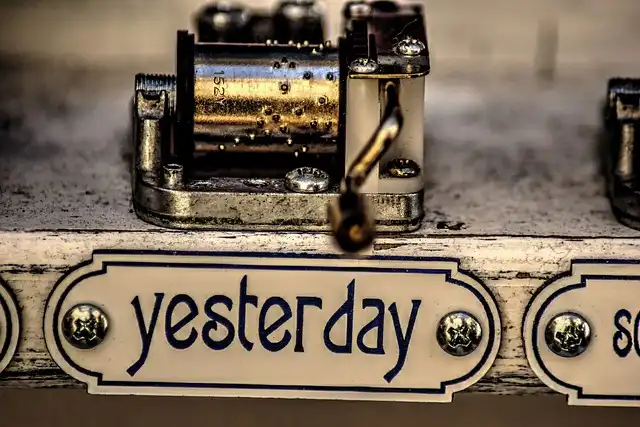‘Daytime Revolution’ Review: In a Fascinating Footnote From the John Lennon-Yoko Ono Annals, Hipster Activists Reach the Middle American Masses

Then there are the less familiar faces, like biofeedback researcher Gary Schwarz, who hooks them all up to electrodes to measure their internal responses to music; avant-garde musician David Rosenboom; macrobiotic chef Hilary Redleaf, who leads a cooking demonstration making hijiki pockets; and folk singer/activists Nobuko Miyamoto and Chris Iijima, known as Yellow Pearl, whose lovely song about second-generation migrants “We Are the Children,” carries a message still relevant more than 50 years later.
Nader, who was 37 at the time and is now 90, brings context to clarify why these episodes were so transgressive. In his 1972 look, he advises a how-to handbook for politically and socially motivated trainees to arrange, pushing an extra accountable grasp of citizenship. In the modern interview, he wryly echoes Lennon and Ono’s sentiments encouraging youngsters to get out and vote by reminding us that skepticism is more useful than resentment in politics.
In the contemporary interview, he wryly echoes Lennon and Ono’s views encouraging young individuals to obtain out and vote by advising us that apprehension is extra useful than resentment in national politics.
Mainly, Douglas appears tickled to be talking with visitors from outdoors his regular booker’s orbit, or joining Ono’s common art jobs– among which entails the reassembly, one item daily, of a broken teacup. The atmosphere is convivial, however also candid and insightful, with looks by names like Ralph Nader, Black Panther chairman Bobby Seale and comedian George Carlin.
Yet this really taken place in February 1972, when John Lennon and Yoko Ono– fresh from penciling their human-rights protest song “Attica State,” a lament for the lives lost in the heartbreaking jail riot and a stinging denunciation of the nation’s penal and judicial systems– sat in with the gracious host of The Mike Douglas Program for an entire week. They were cost-free to welcome their own choice of visitors to talk about every little thing from national politics to biofeedback treatment to the benefits of a macrobiotic diet regimen. Erik Nelson’s doc Daytime Transformation reassembles that vibrant experiment in bringing the counterculture to the squares as a dynamic time capsule.
Miyamoto, Schwarz, Rosenboom and Redleaf are amongst a handful of guests including commentary in the present day, rewatching video of their looks and remembering their initial disbelief when they got the call to appear with Lennon and Ono. Miyamoto shares a fantastic anecdote concerning resisting efforts by the program’s director to tone down some verses regarded subversive, while Redleaf proudly presents the payment stub for her $100 gratuity (she cashed the check).
There are the much less familiar faces, like psychophysiological feedback scientist Gary Schwarz, that hooks them all up to electrodes to measure their interior responses to music; progressive musician David Rosenboom; macrobiotic cook Hilary Redleaf, who leads a food preparation presentation making hijiki pockets; and folk singer/activists Nobuko Miyamoto and Chris Iijima, known as Yellow Pearl, whose charming track regarding second-generation migrants “We Are the Kid,” carries a message still pertinent more than 50 years later.
While the emphasis leans harder into social adjustment than songs, Lennon does mirror on the Beatles years, his training and very early influences (he and Paul McCartney shared a desire to follow in the footsteps of Carole King and Gerry Goffin as the next terrific songwriting team). The musical emphasize, however, is the first-ever conference of Lennon with one of his motivational heroes, Chuck Berry, looking like an awesome feline in a purple fringed shirt and crisp white trousers.
Nelson leaves a gap in the documentary by not discussing any variations in viewership during that week, or whether any one of the many syndication terminals that carried the show got problem letters. Lots of first-hand insight and off-camera monitorings are offered by longtime associate manufacturer E.V. Di Massa, who was 24 the week of the programs.
In the beginning glance, Douglas would certainly seem of an attitude and a generation inappropriate with Lennon and Ono. That perception is advanced by the lounge-act version of the Beatles’ “Michelle” that the former Big Band singer carries out as an intro. Douglas’ visibility, as a lot as Lennon and Ono’s unwinded spontaneity, is a factor the experiment works.
Efforts to integrate archival news footage of the moment– Nixon’s China journey, Vietnam misinformation, cannabis alarmism, institution busing demonstrations– can be a lot more smooth, however the video footage from the shows is the rightful celebrity.
A fascinating side note in all this is the presence behind the electronic cameras of Roger Ailes, that had functioned his method up from publicist to producer on the program. Keeping in mind that Ailes had first satisfied Nixon when the politician was a guest– an experience that brought about him dealing with the candidate’s initial governmental campaign– Nader makes the droll monitoring that you could see the future Fox Information chief executive officer studying every facet of the TV production maker, believing, “Someday I’m going to make certain that tv is a significant tool of conservative politics.”
The musical emphasize, nonetheless, is the first-ever conference of Lennon with one of his inspirational heroes, Chuck Berry, resembling an amazing feline in a purple fringed tee shirt and crisp white pants. When Berry break out his trademark guitar-playing duckwalk steps during a duet with Lennon on “Memphis, Tennessee,” it’s fascinating to view the bands’ encounters light up. The unrehearsed aspect of the musical sections just adds to the enjoyment.
While the focus leans harder into social adjustment than music, Lennon does reflect on the Beatles years, his childhood and early influences (he and Paul McCartney shared a desire to follow in the footprints of Carole King and Gerry Goffin as the following terrific songwriting team). He’s reported to have stated the cellar studio in Philadelphia where The Mike Douglas Program was taped reminded him of storied very early Beatles venue The Cavern, in Liverpool. Amusingly, he provides the faintest of appreciation for McCartney’s very first albums with Wings– though it deserves noting that this was a year prior to their commercial and essential advancement with Band on the Run.
Onscreen text at the end notes that within weeks of the broadcasts, the Nixon management moved to silence the couple, sparking a three-year lawful battle when Lennon was endangered with deportation. That phase, unsurprisingly, was covered in yet an additional doc– 2006’s The united state vs. John Lennon– executive produced by Nelson.
The Beatles had separated 2 years previously and Lennon continued to be a global music super star, while his other half, Ono, went to that time still an extra dissentious figure. Long time fans blamed the fabulous band’s split– relatively or otherwise– on the Japanese multimedia musician, that was seen as an intrusive visibility when Lennon began bringing her along to taping sessions.
Even when Douglas shares dissonance with the radical views of visitor Jerry Rubin, fearing he could bring a turbulent aspect, the host is respectful and receptive as the lobbyist discuss rallying the country’s disaffected young people to help defeat Nixon. That moment is just one of numerous in which the ability of individuals on contrary ends of the political spectrum to exchange concepts without hostility beings in raw contrast with today’s climate of maximum-decibel temper.
There’s been no lack of Lennon docudramas; it was simply over a month ago that the Venice Movie Celebration premiered both One to One: John & Yoko, an intimate year-in-the-life document, and TWST: Points We Stated Today, an experimental picture of the Beatles’ 1965 Shea Arena show. This wrap-up of a deeply genuine and one-of-a-kind bid to demystify optimistic suitables for the traditional masses making use of the system of prominent television provides an interesting peek right into an extremely various period in this country’s past.
At very first glimpse, Douglas would certainly show up to be of a generation and a mindset incompatible with Lennon and Ono. Douglas’ visibility, as a lot as Lennon and Ono’s relaxed spontaneity, is a reason the experiment works.
Ono’s musical interludes can be a little hard on the ears, but they definitely have worth as wacky period items. Lennon’s affecting efficiency of “Visualize” at the keyboard takes a track banalized by years of sappy covers and restores it to its purest kind.
Yet the pair’s cooperative connection and Douglas’ natural warmth and expertise made the unconventional competition a surprisingly smooth fit once they surpassed some initial anxiety. When serving as a reassuring conciliator between Douglas and their visitors, Lennon’s appeal appears to have actually been a huge help; he’s seen even more than.
Transportation on your own back to a time when America had just 3 significant television networks and a solitary daytime talk program was able to produce visitor numbers as high as 40 million a week– greater than a fifth of the populace at that time. Currently envision, if you will, a broadcast environment in which a cherished fixture of mid-day television, enjoyed in red states and blue, would certainly run the risk of alienating a substantial piece of his audience by welcoming as co-hosts a celeb couple understood for their revolutionary passion. You can virtually hear the matches’ alarmed weeps: “We’ll lose the homemakers!”
Singer Vivian Reed, who performs the mixing scripture hymn “His Eye gets on the Sparrow” on among the episodes, also recalls, with pinch-me, this-really-happened happiness. Reed had collaborated with Douglas in Vegas, so along with regular guest Carlin, she offered a bridge between the host’s convenience zone which of Lennon and Ono.
When Douglas asks, early in the first of their five episodes, what they wish to speak about over the course of the week, Lennon and Ono react, “Love, tranquility, communication, women’s lib, racism, prison problems, drugs.” They make it clear that their innovative and political agendas are intertwined, and they exist to spread the word. He doesn’t let on if Douglas really feels any type of concern regarding exactly how palatable that could be to his audience.
1 generate viewer numbers2 Lennon
3 Lennon and Ono
4 Mike Douglas Show
5 Ono
« How to Watch All of the ‘Deadpool’ Movies in Order OnlineSally Field Shares “Horrific” Story of Illegal Abortion as Reason to Support Kamala Harris: “We Can’t Go Back” »
